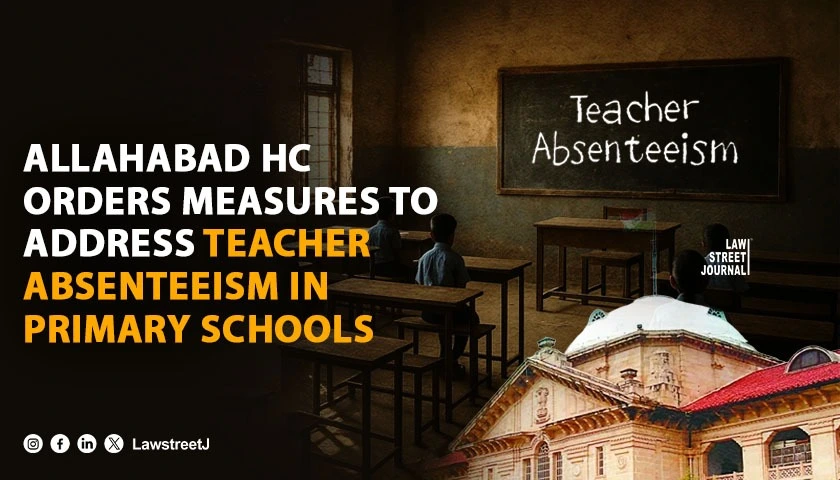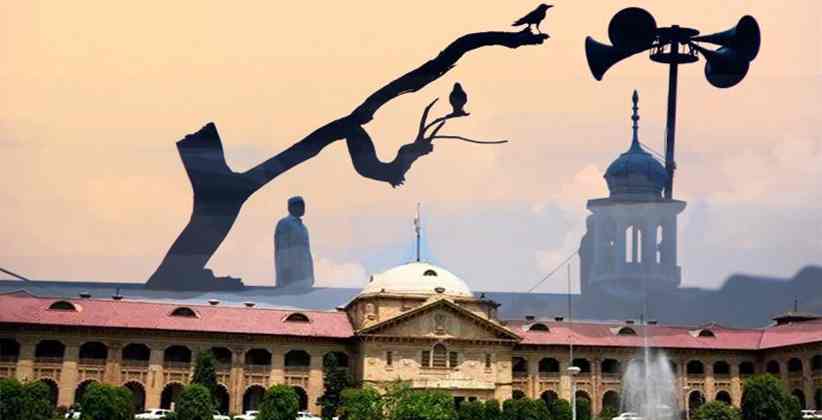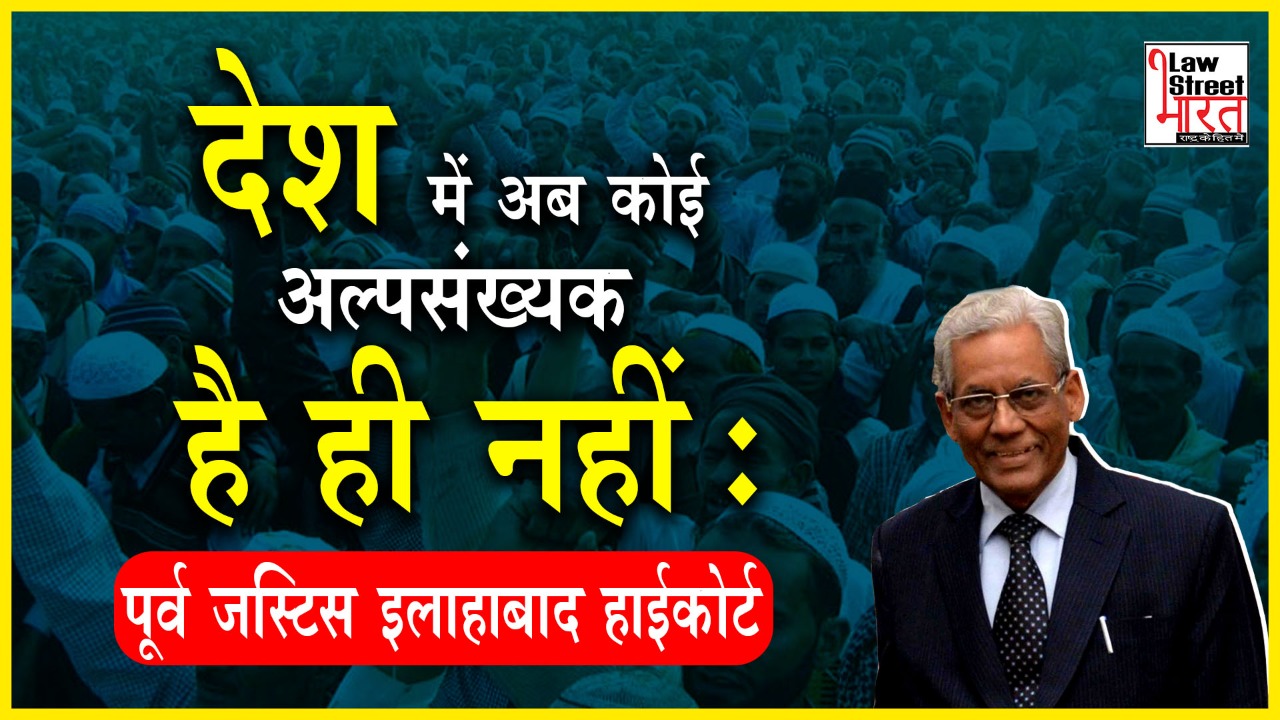Prayagraj: The Allahabad High Court has delivered a significant order addressing the critical issue of teacher absenteeism in primary educational institutions, emphasizing the constitutional right to education for children from rural and disadvantaged backgrounds.
Justice Praveen Kumar Giri made observations on the impact of teacher absence on students’ fundamental rights and directed government authorities to formulate strict rules ensuring teacher presence during school hours.
The court was hearing a writ petition filed by Indra Devi seeking to quash her suspension order dated August 30, 2025, and to direct the District Basic Education Officer, Banda, to permit her continuation as Head Teacher. The court noted, “This Court is flooded with matters pertaining to the attendance and non-attendance of teachers in primary educational institutions.”
Highlighting the specific incident that led to the suspension, the court observed, “The District Magistrate, Banda, conducted an inspection of Composite Institution, Pailani, Block Tindwari, District Banda, on 30.08.2025 at around 1:30 PM, during which the Head Teacher, Indra Devi, was found absent from the institution without proper authorization or notice to the staff.”
The court emphasized the broader implications of teacher absenteeism, stating, “Without proper attendance of teachers and staff in primary institutions, the purpose of the Right of Children to Free and Compulsory Education Act, 2009, shall be frustrated, thereby violating the fundamental right to education of children from poor villages.”
In a critical observation about its effect on students, the court stated, “The absence of teachers from school has a negative impact on students’ learning, such as lower academic achievement, and creates unequal learning opportunities, especially for students from disadvantaged backgrounds who cannot afford private tutors or coaching.”
The court drew upon traditional wisdom regarding the sacred role of teachers, noting that education is considered a form of service and that teachers hold a divine status in Indian culture and tradition.
Regarding expectations from teachers, the court observed, “From the students’ point of view, education is a lifelong process that requires teachers’ complete dedication, as was the practice in the Gurukul system. After obtaining the pious position of a teacher, if one attends the institution on time, imparts teaching, and leaves only after the scheduled period, there would be no issue.”
The court also addressed systemic issues, stating, “The State Government has made a policy to monitor the quality of teaching in primary schools in Uttar Pradesh through digital attendance systems and by constituting Task Forces at the District and Block levels.”
In its final directive, the court stated, “The Chief Secretary, Government of U.P., along with the Additional Chief Secretary, Basic Education; Additional Chief Secretary, Social Welfare Department; Additional/Principal Secretary, Minority Department; Director General of School Education, U.P., Lucknow; Director, Basic Education, Lucknow; Additional Director, Basic Education, Prayagraj; and all District Basic Education Officers, are directed to frame rules and regulations ensuring teacher presence throughout the entire duration of school hours, particularly for children from poor villages in rural areas.”
The court further emphasized that “the fundamental right of a child belonging to a poor villager studying in a primary educational institution cannot be violated by any person, including a teacher, who is treated as a government employee and hence a ‘State’ under the Constitution of India.”
The matter has been listed for further hearing on October 30, 2025, to receive instructions from the concerned authorities on the legal and administrative mechanisms necessary to ensure teacher presence in primary educational institutions.
Case Title: Indra Devi vs. State of U.P. and 2 Others
Disclaimer: This content is produced and published by LawStreet Journal Media for informational purposes only and does not constitute legal advice. The views expressed are independent of any legal practice of the individuals involved.








!["No Loudspeakers For Azan, No Fundamental Right To Create Noise," Says Allahabad HC To Two Mosques [Read Judgment]](/secure/uploads/2020/01/lj_4995_Allahabad_HC_AZAN.jpg)






